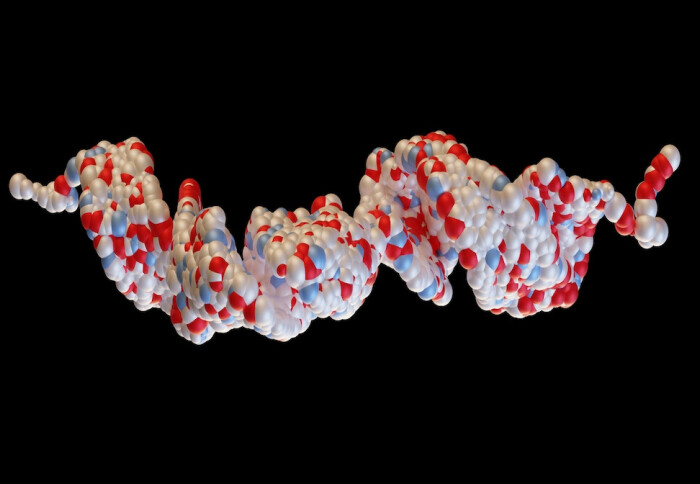GLP1 Receptor Mutations: The key to personalised medicine for diabetes & obesity

New research reveals that mutations in the GLP1 receptor significantly impair insulin secretion, disrupt glucose regulation, and increase adiposity.
In this collaborative study, co-led by Imperial’s Dr. Philippe Froguel and Dr. Amélie Bonnefond, alongside Dr. Ralf Jockers (Inserm/CNRS, Université Paris Cité), researchers have found the significant role of DNA mutations in the glucagon-like peptide 1 receptor (GLP1R) and their profound effects on metabolic traits related to diabetes and obesity. Published in Nature Metabolism, the research also sheds light on how these mutations modify the efficacy of GLP1R agonist treatments, used mainly against diabetes and obesity, but also showing unexpected efficiency against heart, renal and stroke complications of diabetes.
The GLP1 hormone helps regulate insulin and body weight by activating the GLP1 receptor in the body. Doctors often use medications that mimic this hormone to treat diabetes and obesity. However, until now, that was a lack of understanding of how naturally occurring gene mutations in the GLP1 receptor affected these treatments.
In their study, the research teams examined 60 rare gene mutations in GLP1 receptors. Surprisingly, 56 of these mutations had a big impact on how the receptor worked. These mutations caused problems with insulin production. Researchers found two ways to fix this: using higher doses of medication or combining lower doses with special helper molecules for some mutations.
Using the UK Biobank cohort, they found that certain GLP1 receptor mutations were linked to glucose control problems and increased body fat. This discovery could have a significant impact for personalised medicine. People with these gene mutations may benefit not only from existing treatments but also from new medications designed to work specifically with these mutations.
Professor Philippe Froguel, Chair in Genomic Medicine in the Department of Metabolism, Digestion and Reproduction, said: "This pioneering research is poised to revolutionise treatment options targeting GLP1R. It offers new hope to obese and diabetic patients who are either resistant to current GLP1R agonist treatments or experiencing serious adverse effects at high dosages of the drug. Personalised and more effective therapies may soon become a reality for diabetic and/or obese individuals, thanks to the insights gained from this study”.
Human GLP1R variants affecting GLP1R cell surface expression are associated with impaired glucose control and increased adiposity. Wenwen Gao, Lei Liu, Eunna Huh, Florence Gbahou, Erika Cecon, Masaya Oshima, Ludivine Houzé, Panagiotis Katsonis, Alan Hegron, Zhiran Fan, Guofei Hou, Guillaume Charpentier, Mathilde Boissel, Mehdi Derhourhi, Michel Marre, Beverley Balkau, Philippe Froguel, Raphael Scharfmann, Olivier Lichtarge, Julie Dam, Amélie Bonnefond, Jianfeng Liu & Ralf Jockers. Nature Metabolism (2023)
Article text (excluding photos or graphics) © Imperial College London.
Photos and graphics subject to third party copyright used with permission or © Imperial College London.
Reporter
Benjie Coleman
Department of Surgery & Cancer